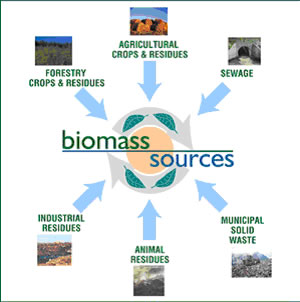Apr 11
19
Biomass is a renewable energy source. It is biological material from living, or recently living organisms such as:
- plant materials, (e.g. crops, crop residues);
- wood and wood waste from timbering and lumbering operations;
- animal carcases and the animal wastes from meat processing;
- animal manures; and
- wood waste from construction and demolition sites.
Biomass is commonly plant matter grown to generate electricity or produce heat.
The most conventional way in which biomass is still relies on direct incineration.
Forest residues for example (such as dead trees, branches and tree stumps), yard clippings, wood chips and garbage are often used for this.
However, biomass also includes plant or animal matter used for production of fibers or chemicals. Biomass may also include biodegradable wastes that can be burnt as fuel.
Some governments may have laws or regulations governing the disposal of biomass and the strict legal definition may vary from jurisdiction to jurisdiction.


 EXECUTIVE DOWNLOAD
EXECUTIVE DOWNLOAD